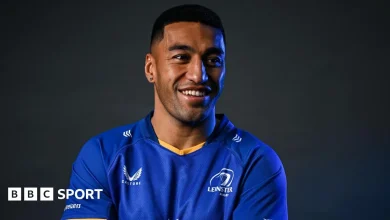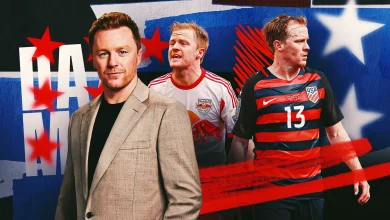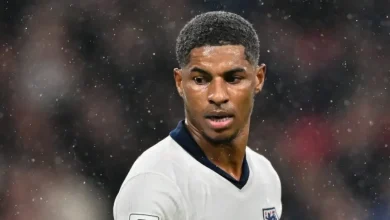10 Harsh Realities Of Rewatching Christopher Nolan’s Dark Knight Trilogy

Christopher Nolan’s Batman movies left an indelible mark on how moviegoers and filmmakers approach superhero cinema. These days, revisiting the three movies feels like a tour through Nolan’s development itself. Each entry is more ambitious than the next: Batman Begins grounded Gotham City following years in a proverbial Hollywood jail over Joel Schumacher’s campy take on the world. The Dark Knight doubled down on its success, evolving into a genuine cultural phenomenon and earning Heath Ledger a posthumous Oscar. The Dark Knight Rises rounds out the saga with operatic ambition, featuring hundreds of extras and on-location shoots. Together, they tallied over $2.4 billion worldwide at the box office and influenced practically every major studio action film that followed.
But time hasn’t been entirely kind to Nolan’s trilogy. Two decades removed, and some cracks start to reveal themselves. An unfortunate plethora of choices, once considered bold—edgy, even!—in its mid-2000s glow, now read as limitations. The relentless, grimdark storytelling often lands belabored, at best, lost in the blur of the gritty IP adaptations spawned. Nolan’s commitment to grounded realism created stunning moments but also let several lovable Batman elements fall to the wayside.
The Dark Knight Trilogy’s Fight Choreography Hasn’t Aged Well At All
Christopher Nolan’s Batman and non-Batman filmography speaks for itself. The Inception and Oppenheimer director is a master at staging atmospheric set pieces and bringing mythic dialogue scenes down to earth. Hand-to-hand combat, however, is not his forte. But somehow, it was all the rage back in the day. Everyone raved over how cool The Dark Knight Trilogy fight scenes were. The shaky cam was ballyhooed back then but only results in bouts that are often incoherent or blink-and-you-miss-it.
To be clear: the callout isn’t a knock on the filmmakers. Nowadays, clear eyes can tell this was Nolan and trilogy DP Willy Pfister’s cleverest sleight of hand trick. Does the budget not lend itself to some sprawling fight scene? Don’t fancy yourself a traditional combat cinematographer? Observe the action with the frenzied nature of a bat. When The Dark Knight Rises, so too, the standards. Thankfully, the Ben-Hur and Tale of Two Cities-inspired entry, co-led by Tom Hardy’s physical villain Bane (Tom Hardy) lent itself to an upgrade in this category. Not enough, though, to counterbalance what, in retrospect, lands like sloppy Jason Bourne.
The Dark Knight Didn’t Deliver the Two-Face Fans Dreamed Of
Aaron Eckhart as Two-Face in The Dark KnightCourtesy of Warner Bros. Discovery
The Dark Knight is most remembered for Heath Ledger’s turn as The Joker. It delivers the best live-action Two-Face to date, too. Aaron Eckhart’s downfall as Harvey Dent, Gotham’s Assistant District Attorney, is both powerfully performed and faithfully adapted by screenwriters Christopher & Jonathan Nolan and David S. Goyer. For the bones of its bulky 2 hour and 32 minute runtime, this really feels like the on-screen Harvey/Two-Face Batman fans had been waiting for ever since Tommy Lee Jones’ questionable Batman Forever depiction. Yet, in what could be Nolan’s most frustrating TDK trilogy decision, Two-Face gets killed off in the film’s closing moments. That euphoric high over a loyal on-screen adaptation of Harvey Dent’s descent into the fractured Two-Face? Harshly rug-pulled from under every fan because it all happens and ends in the span of a day or two.
Those same fans crossed their fingers during pre-production for The Dark Knight Rises, hoping Two-Face (who plummeted from a building’s top floor to its cavernous bottom) somehow survived the film prior. But Eckhart himself put that to rest early on, delivering the bad news to Ain’t It Cool in 2008, saying, “[Not a chance]. No. I’m dead. I couldn’t even get the words out of my mouth. ‘Hey, Chris [Nolan], am I–?’ ‘No. You’re dead. You’re dead.'”
Addressing the Elephant/Cat in the Room: Anne Hathaway’s Selena Kyle Rocks
Credit: MovieStillsDB
Here’s a different kind of harsh reality for fans of The Dark Knight Trilogy to consider: haters are wrong about Anne Hathaway’s Selena Kyle/Catwoman. The backlash before The Dark Knight Rises smacked of prejudice against Hathaway’s history—an inescapable “musical theater kid” energy, the actress from The Princess Diaries and The Devil Wears Prada. Apparently, no one had learned from the first waves of feedback regarding Heath Ledger’s getting cast as The Joker on the heels of Brokeback Mountain.
Turns out the same resumé that had fans sweating served Hathaway’s Catwoman like catnip. Her theatricality injected a playfulness and debonair into the Batman rogues gallery starlet. Ledger silenced critics and delivered what many consider the best villain performance of all time. As for Hathaway, it’s clear when revisiting The Dark Knight Rises: her Catwoman is the best female performance and most fully-realized female character in Nolan’s entire Batman trilogy. Throughout Rises, Catwoman code-switches between demure socialite and dangerous thief with a balletic grace that’s totally Hathaway’s.
Whereas Rachel Dawes was limited to damsel in distress roles, only to get fridged and Talia al Ghul is a plot twist, Selina is an actual force—an opposing symbol to Christian Bale’s Batman persona. Zoë Kravitz inherited the role in Matt Reeves’ The Batman. That rendition gave fans the Batman: Year One and Jeph Loeb/Tim Sale-inspired Selena Kyle they’d been waiting for, in what most consider to be a better movie, no less. So, for Hathaway supporters, the harsh reality isn’t the quality of her performance. It’s coming up short on hope that she’ll ever get proper credit for her take, now that she’s overshadowed.
Christian Bale’s Batman Voice Turned Into a Punchline For Good Reason
Christian Bale as Batman in Batman Begins holds Det. FlassCourtesy of Warner Bros. Discovery
Christian Bale’s Batman voice is the growl that launched a thousand memes. It even helped kickstart careers. Pete Holmes, now one of the most successful podcast personalities and stand-up comedians out there, gained notoriety in his early days, lampooning Batman in various sketches that took YouTube by storm. Looking back, it’s easy to see why the “Bat-voice” was such an easy target. Every line sounds like Bale is using a handful of gravel for mouthwash. But it works in Batman Begins because it’s used in doses—a vocal affectation to disguise Bruce Wayne’s voice, used strategically to frighten enemies in the movie’s most tense moments. But by the time The Dark Knight rolls around, when Batman needs to have emotional conversations with his closest allies and still keep his identity secret, the voice enters the near-parody level memes and comedians would take advantage of shortly after.
Things really come to a head—or headache—in The Dark Knight Rises when Bale’s garble is in dialogue with Bane’s distorted mask/muzzle. Nolan is no stranger to strange audio issues, but this one feels a lot more avoidable than those of Tenet and Inception. “[The voice] ain’t for everybody,” Bale admitted in an interview with MTV. “It was the only way that I could find how to get into that and to justify wearing the fricking Batsuit. Otherwise, he’s just loopy beyond belief. He’s loopy, but he’s loopy with a method to his madness.” Trust me, when, in The Dark Knight, Batman says, “He’s the first legitimate ray of light Gotham has seen…in decades,” in full rasp, it feels loopy beyond belief.
The Dark Knight Rises Collapses Under Plot Holes
The Dark Knight was considered a classic upon release. As its follow-up, The Dark Knight Rises had an impossible task. It wasn’t necessarily a misfire, but the grand finale flounders due to questionable plot holes and storytelling omissions. It’s especially a shame considering the movie’s 2 hour 44 minute runtime.
Theoretically, a length like that should have space for filling in some of The Dark Knight Rises‘ most glaring gaps: how does Bruce Wayne get from the prison pit back to Gotham? Why does Gotham PD go underground, essentially abandoning the entire city above? Why doesn’t the government consider Bane’s financial attacks illegal? In a vacuum, it’s easy to yada-yada away some offenses. Sum of parts, it borders on unforgivable. The melodrama that bloated the film could’ve—and should’ve—been devoted to delivering quality scenes that explain these head-scratchers.
The Dark Knight Trilogy is Actually About Alfred
Alfred in The Dark Knight RisesCourtesy of Warner Bros. Discovery
Every chapter of The Dark Knight Trilogy channels a different genre, doing its darndest to stand on its own two feet. There are plenty of throughlines to keep a completist satisfied: the evolution of Batman as a symbol, the League of Shadows’ looming presence and Gotham’s institutional corruption are all undercurrents. And sure—one would expect a Batman trilogy to be anchored by Batman himself, but it’s Michael Caine’s Alfred that is the strongest saga-long storyline.
“That was the first idea, and then, we knew we had a movie! Alfred is his proxy father; he’s worried that Bruce sees no way out of this other than su*cide by Batman, death by Batman, right? And then he’s at this moment, and he sees this nod, and he realizes Bruce got out. And we thought, ‘Oh! That’s a story worth telling!’ I didn’t know what the story would be.”
Alfred is Bruce’s guardian in childhood and, in adulthood, protects him with a devastating, quiet devotion. Caine’s performance makes it easy for audiences to track Wayne’s arc from film to film. When Bruce goes full hermit in The Dark Knight Rises, it’s an emotional wallop because Alfred’s heartbroken over it.
Yes, the revelation of Batman’s butler, not Batman, being the emotional center of the trilogy will sting. But it turns out that was the filmmaker’s intention. In a 2025 interview with Brandon Davis, David S. Goyer revealed as much. “I remember sitting at lunch, and the first idea [Nolan and I] came up with was that last [The Dark Knight Rises] scene. That was the first idea, and then, we knew we had a movie! Alfred is his proxy father; he’s worried that Bruce sees no way out of this other than su*cide by Batman, death by Batman, right? And then he’s at this moment, and he sees this nod, and he realizes Bruce got out. And we thought, ‘Oh! That’s a story worth telling!”
Nolan’s Grounded Gotham City Means No Fun Villains
Batman rogues gallery splash pageCourtesy of DC Comics
Nolan’s grounded realism revolutionized superhero movies and the action genre at large. It benefited the filmmaker, whose pre-Batman projects included crime dramas like Insomnia and Memento. The vision, as innovative as it might’ve been, cut the franchise off from Batman’s historically robust catalog of bad guys. Iconic villains long overdue for a worthwhile live-action treatment, like Mr. Freeze, Killer Croc, Poison Ivy, Man-Bat, were all too fantastical for Nolan’s world.
Even the villains Nolan picked get shorthanded. As far as comic book vibes go, Scarecrow is as far as Nolan was willing to push the envelope. Others are totally neutered. Ra’s al Ghul leads a spy cult instead, a far cry from the Lazarus Pit-reliant immortal. Bane never uses Venom to get super strong. Nolan’s trilogy was built on the foundation of Batman’s threats being strikingly realistic. But that begs the question: why make Batman, a distinctly unrealistic premise?
Nolan’s Batman Trilogy Desperately Needed Robin to Inject Some Hope
Image via Warner Bros. Animation
The Dark Knight Trilogy tallies around nine hours across three films, and almost none of it feels hopeful. Gotham is a corrupt hellscape and a miserable Bruce is its lone protector. Critics and fans alike adored the dramatic depiction. In turn, suggesting something like rounding out the cast with a Robin would’ve been considered heresy in the franchise’s heyday.
But an actual Robin—not John Blake getting the name in the franchise’s final five minutes—would’ve been just the emotional counterweight to boost The Dark Knight Trilogy whenever it feels bloated or joyless. It’s a lift the films desperately needed, and a presence the characters need, too. When Batman or Commissioner Gordon were most hopeless, Robin could’ve been someone who still believes in heroes, who sees Batman as an inspiration rather than a grim necessity. Rewatching any Nolan Bat-flick, it’s hard not to wonder how Dick Grayson’s acrobatics and circus sensibilities, Tim Drake’s kid sleuthing, even Damian Wayne’s bratty violence would’ve added some dynamism to the trilogy.
The Dark Knight Rises’ Time Jump Skipped Too Much Story
Courtesy of Warner Bros. Discovery
The Dark Knight picked up right where its predecessor, Batman Begins, left off. The latter ended with Commissioner Gordon telling Batman about The Joker’s “taste for theatrics.” The Dark Knight started with said chaos. Its eventual ending felt like a cliffhanger for the next chapter. Batman framing himself for murder, Two-Face’s questionable death and The Joker fleeing capture left so many storytelling possibilities on the table.
The harsh truth is, it’s a confusing choice to this day. Back in the day, Nolan’s fans were puzzled when news originally broke that The Dark Knight Rises would jump about a decade after The Dark Knight. Most frustrating? The Dark Knight Rises could have still existed just fine as a fourth installment. Even more frustrating, going from sequel to three-quel these days, it feels like there’s a movie missing in between them. Needless to say, it’s a tough pill to swallow watching the trilogy now, knowing Nolan left all the aforementioned storytelling cards in play, forever.
Nolan’s Batman Isn’t the Detective; Lucius Fox Is
Lucius Fox seeing the spy screens in The Dark KnightCourtesy of Warner Bros. Discovery
For a trilogy obsessed with realism, it’s interesting that the comic book character known as The World’s Greatest Detective rarely does his own detecting. Nearly ten hours of action but Christopher Nolan confines his Batman to vengeful gadgetry and bone-bruising fisticuffs. The Dark Knight Trilogy‘s true deductive mind belongs to Morgan Freeman’s Lucius Fox.
Across all three entries, Fox is the one deep-diving into business dossiers, mining complex surveillance data. He even unravels the Joker’s phone-bomb scheme in The Dark Knight. Typically, such sleuthing is saved for The Dark Knight himself. Bruce Wayne outsources curiosity to his CTO—chalk it off to Nolan’s corporate realism. It helps elevate the side character to stand out. He’s a willing ally, but he’s unafraid to push back on Bruce, the one man who questions the ethics of Batman’s methods, to outcry against the bad ethics of The Batman. “This is too much power for one man,”—Lucius’ response to Batman’s very post-9/11 phone-tapping scheme in The Dark Knight— is the closest the trilogy gets to interrogating the character’s morals.
The Joker writes in blood in one of the posters of The Dark Knight
Cast
Christian Bale, Heath Ledger, Gary Oldman, Katie Holmes, Maggie Gyllenhaal, Anne Hathaway, Tom Hardy, Liam Neeson, Morgan Freeman, Cillian Murphy, Aaron Eckhart, Michael Caine, Joseph Gordon-Levitt





